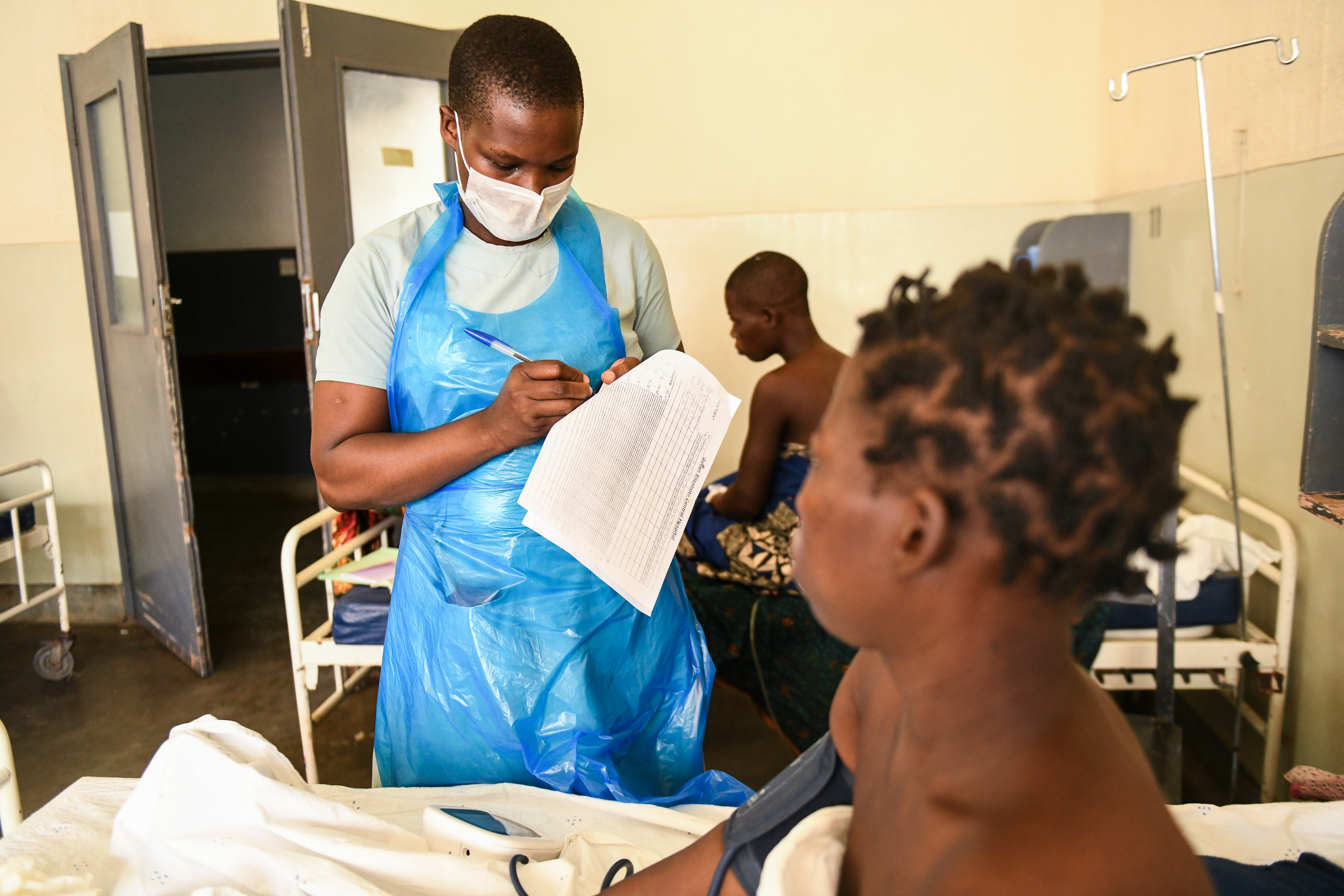Knowledge is Power: Safeguarding Maternal Health During COVID-19
5 May 2022


Since 2011, Ammalife has partnered with Birmingham Women’s Hospital, UK, and Queen Elizabeth Central Hospital in Blantyre, Malawi, to co-produce interventions and conduct practical research to reduce maternal mortality. Through our COVID Response Fund (CRF), the partnership has been working to reduce the direct and in-direct effects of COVID-19 on maternal health in Malawi.
Ammalife has refused to be a spectator whilst 810 women around the world die every day because of pregnancy and childbirth related complications. From the beginning, we knew partnership would be mutually beneficial, sharing learning and developing the practice of clinicians from both countries, and ultimately saving the lives of mothers.
For us there has always been a moral duty to play our part in supporting resilient health systems around the world so that pregnant women return safely back to their families. However, the pandemic has proven that playing our part is also a necessity for global wellbeing, since fragile health systems are a risk to everyone’s health.
During the COVID-19 pandemic, the focus of our partnership needed to shift. Our Malawian partners drove this new project in response to the fear and anxiety among mothers, midwives and clinicians, caused by the pandemic. We needed to support the maternity facilities in Malawi to prepare for and protect the wellbeing of overstretched staff.
We also knew that pregnant mothers in their final trimester were particularly vulnerable to COVID-19, so it was important to act quickly to safeguard them. Being a small charity proved to be a huge benefit as it enabled us to be agile, adapting in response to the fast-evolving situation.
Our Malawian partners felt that knowledge was power so created a community to share experiences and best practice. It allowed all those working hard to adapt their services to share their efforts with their peers.
There were weekly, virtual, continuous professional development webinars on COVID-19 and Maternal & Newborn Health. Every week each facility was given a platform to present their preparedness and any cases of COVID-19 in maternity that they encountered. Health workers led the discussions and knowledge sharing – boosting morale in difficult times.
We created a mental health support training package and trained frontliners from the 3 facilities to be mental health support leads. They developed support groups to provide vulnerable health care workers with mental health coping strategies during the extremely stressful period.
Working virtually meant that there was reach across all district level facilities and Malawi Ministry of Health, which would have been difficult to achieve face to face – especially during a pandemic where social distancing was important. There were teething problems with Zoom which were overcome with practice. At times intermittent internet accessibility also caused challenges.
Being based in the UK, I have also been able to use Zoom and WhatsApp to communicate with partners in Malawi which has been a useful addition to email.
As a result of the project, maternity facilities reported feeling like they were not alone in the pandemic and that cross-cutting challenges meant they were united in their approach and better equipped to deal with them.
There had previously been no mental health support for staff in the facilities but by the end of the project, there were at least 10 trained leads per facility able to provide support groups which will continue to be of benefit going forward.
For Ammalife, we have noted the benefit of the reach that virtual communication and training has given us, where previously there was concern that internet challenges may be restrictive to virtual learning. It has certainly expanded our future ways of working with our Malawian partners.
– Ammalife Project Team
FIND OUT MORE

Founded by doctors and midwives, Ammalife is a specialist, research-driven organisation committed to tackling obstacles to good maternal health in some of the poorest parts of the world.
Click here to hear from Pilirani Makungwa, a Nursing Officer at Queen Elizabeth Central Hospital who received training through the CRF, on how COVID-19 has impacted maternal health outcomes and quality of care, and how working in partnership has offered effective solutions.



0 Comments
Leave a comment
Your email address will not be published.